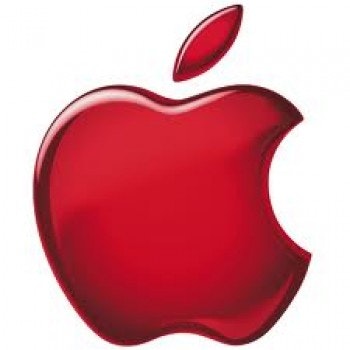Trading near 52-week lows, Apple Inc. (NASDAQ:AAPL) shares may appear “cheap” to many traders. However, the company is facing a major problem in 2013: the commoditization of its core business. Even at these levels, Apple shares could have significant downside in 2013.
The importance of the iPhone can’t be understated
At first glance, Apple Inc. (NASDAQ:AAPL) seems to be exposed to a number of different business: traditional laptops with its Macbook Pro, mp3 players with its iPod, tablets with the iPad and of course, smartphones with its iPhone.
Yet, although it seems to be involved in a number of different product lines, the simple fact is that Apple is primarily a smartphone company. Business Insider noted back in August that roughly two-thirds of Apple’s profit comes from the iPhone — the device simply overwhelms the rest of the company.
Perhaps it’s then no coincidence that Apple’s stunning drop last fall coincided with a flurry of negative reports suggesting that iPhone demand was softer than anticipated over the holiday season.
Android has finally commoditized the smartphone business
About three months before Apple Inc. (NASDAQ:AAPL) shares hit their all-time high, Samsung released the Galaxy S3. In retrospect, it was a watershed moment, as for the first time, there was a phone on the market that was arguably better than (or at least as good as) the iPhone.
But the Galaxy S3 is just the beginning, it isn’t only Samsung that Apple has to worry about. This year will bring at least half a dozen smartphones to the market that will all challenge the iPhone for supremacy.
In addition to Samsung’s follow-up to the S3 (the S4), there will also be Sony Corporation (NYSE:SNE)’s Xperia Z — a 5-inch, supercharged, waterproof Android phone. Then there’s Motorola’s rumored “Xphone,” and new flagships from HTC and LG. There might even be new entrants to the market, like China’s Huawei.
All of these phones will have impressive processors, great cameras and HD screens. In short, 2013 is the year in which a business that Apple once enjoyed a monopoly in (the high-end smartphone market) will fully become a commodity business.
Basic economics dictates that commodity businesses aren’t capable of generating the type of profits that Apple has enjoyed for the last two years.
Sony Corporation (NYSE:SNE) faced the same issues
Apple has often been compared to Sony. In the 1980s and into the 1990s, Sony was riding high, living off its Walkman and Trinitron TV.
Then something happened. Sony Corporation (ADR) (NYSE:SNE) stopped innovating; its products slowly became commodities. The patent on the technology in the Trinitron, for example, expired in 1996, and Sony Corporation (ADR) (NYSE:SNE) immediately met a host of competitors.
If one ignores the tech bubble of the late ’90s (a time when nearly all tech stocks rallied to unreasonable levels), Sony’s stock has largely been range-bound over the last 20 years.
Apple’s CEO Tim Cook told Brian Williams last December that he believed Sony’s problems stemmed from a lack of focus. While it may be true that Sony’s business is stretched to an excessive degree, the company had a larger problem. In the 1980s, people specifically wanted Sony TVs, stereos and tape-players; by the late 1990s, they no longer cared.
Google Inc (NASDAQ:GOOG)’s rich valuation is based on hope
The stock market is a discounting mechanism. That is, stocks trade today based on what the future is believed to hold. Apple’s share price has fallen because investors expect the company’s margins to decline, and sharply.
Shares of Smith & Wesson Holding Corporation (NASDAQ:SWHC), for example, tumbled on Wednesday despite the fact that the company had posted impressive earnings. Investors simply didn’t believe that the record gun sales the company had enjoyed in the fourth-quarter were likely to continue.
Meanwhile, Google Inc (NASDAQ:GOOG) shares have rallied based on hope. It’s no coincidence that Google Inc (NASDAQ:GOOG)’s price-to-earnings ratio has exploded in recent months: The media has been hyping up the future of the company.
Google Inc (NASDAQ:GOOG) glasses, self-driving cars, stores and a same-day shopping service have combined to generate a level of interest in the company reminiscent of Apple Inc. (NASDAQ:AAPL) at its peak. It’s also given investors a reason to hope that the company’s future earnings will far exceed the present.
Buy Apple Inc. (NASDAQ:AAPL) if a new product appears or capital is returned
When should investors hop back into Apple? The company could do two things to make its shares a buy once again.
Apple could introduce a new product. Such a product could give Apple a new cash cow to replace the iPhone. Those products could include the often-rumored iWatch or iTV, or perhaps something else entirely. But if Apple can innovate once more, its shares could rapidly turn around.
Apple could also admit that it’s become a mature tech company and return capital to shareholders. Apple will always have its die-hard enthusiasts. and there will be a market for its products even if they face significant competition. If Apple shows it’s committed to returning capital, it could be seen as a value play.
At any rate, investors should recognize the trends threatening Apple’s business. Unless the company can unveil a new product soon, or show a commitment to returning cash to shareholders, the stock could trade lower still.
The article Why Apple Isn’t Cheap originally appeared on Fool.com and is written by Salvatore “Sam” Mattera.
Copyright © 1995 – 2013 The Motley Fool, LLC. All rights reserved. The Motley Fool has a disclosure policy.






